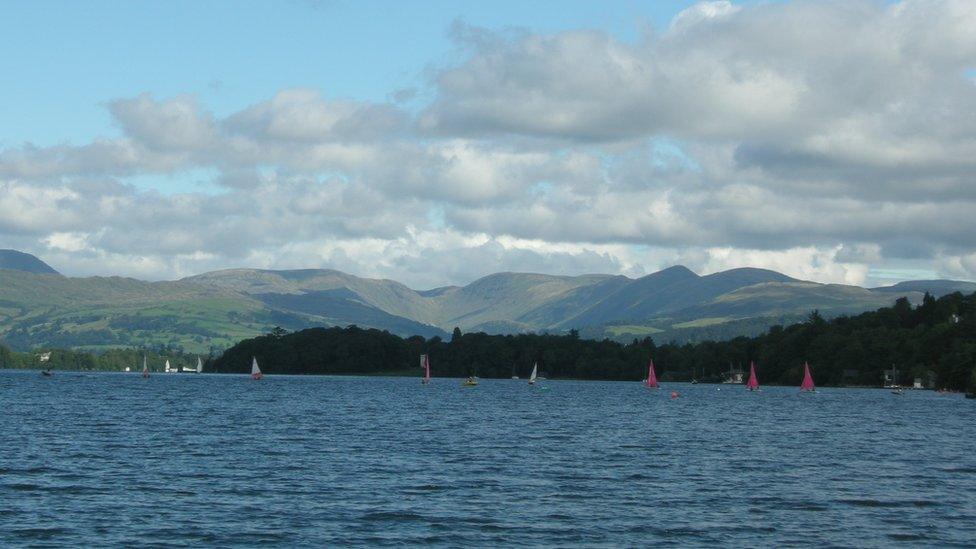Windermere sewage leaves water in 'very dire state'
- Published
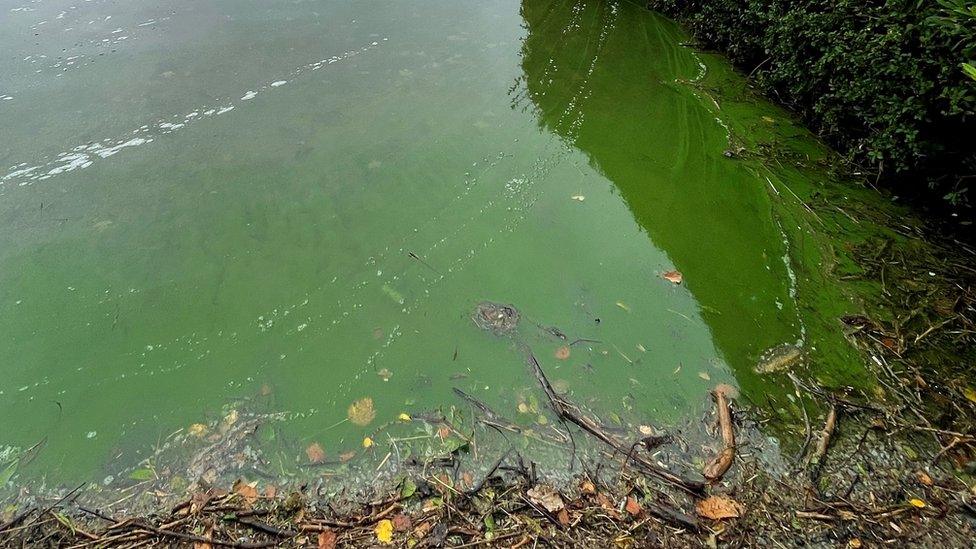
The Environment Agency says the increased presence of blue green algae is a strong "indicator of change"
Campaigners say raw sewage discharged in Windermere has left water quality so poor it is in danger of becoming "ecologically dead".
Conservationist Matt Staniek said sewage came from the water treatment site overflow system and from "largely unregulated" private septic tanks.
"It's in a very, very dire state and it's only going to get worse," he said.
Water company United Utilities (UU) said the overflow system was used in heavy rain to prevent flooding.
Windermere: Zoologist calls to protect water from sewage
It said it had invested £40m in its processes around Windermere, improving discharge water quality.
But Mr Staniek said sewage entering the water had caused widespread blue green algal bloom, which was killing invertebrates, fish and vegetation.
"Something needs to be done now before the lake ends up an ecologically dead water body in the heart of the national park," he said.
The Duchess of Cambridge took a boat trip on Windermere in the company of two Holocaust survivors just a few weeks ago.
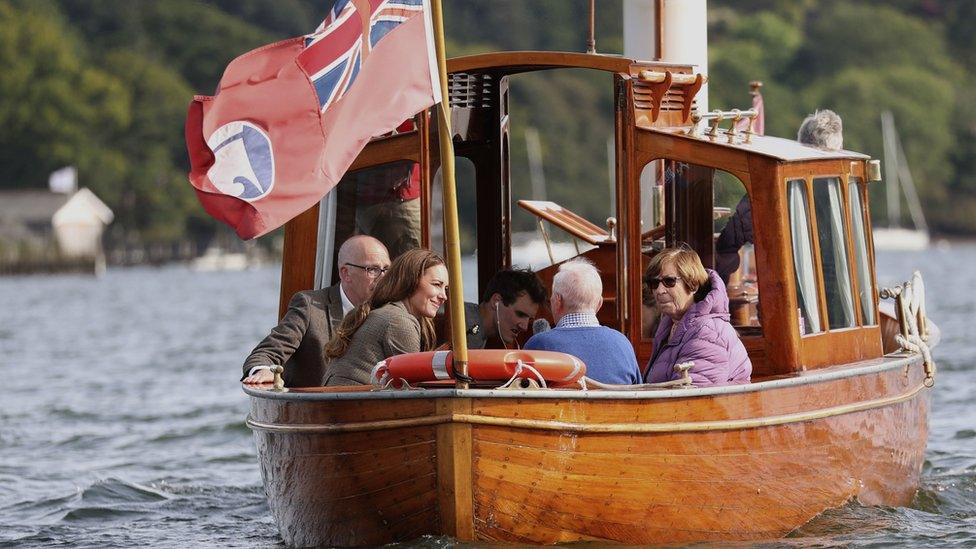
Catherine talked to Ike Alter and Diane Stoller during her trip on Windermere
The Environment Agency (EA), which is responsible for enforcing water regulations, said the issues were "complex".
Environment, planning and engagement manager Jim Ratcliffe said the agency had worked with UU since the late-1990s "requesting progressive improvements to their sewerage treatment processes".
"In terms of the main treatment processes and the effluent that's discharged into the lake we have seen considerable improvements over those two decades," he said.
"The challenge is that lakes in particular take a long, long time to recover."
The EA was looking at the firm's storm discharges to see "where improvements need to be made", he said.
'Strongest indicator'
It is also looking at local agriculture and private properties.
"Our preference would be that we wouldn't have direct discharges to streams, rivers, anything like that," he said.
The increased frequency of blue green algae was "the strongest indicator of change" but was being amplified by climate change, he said.
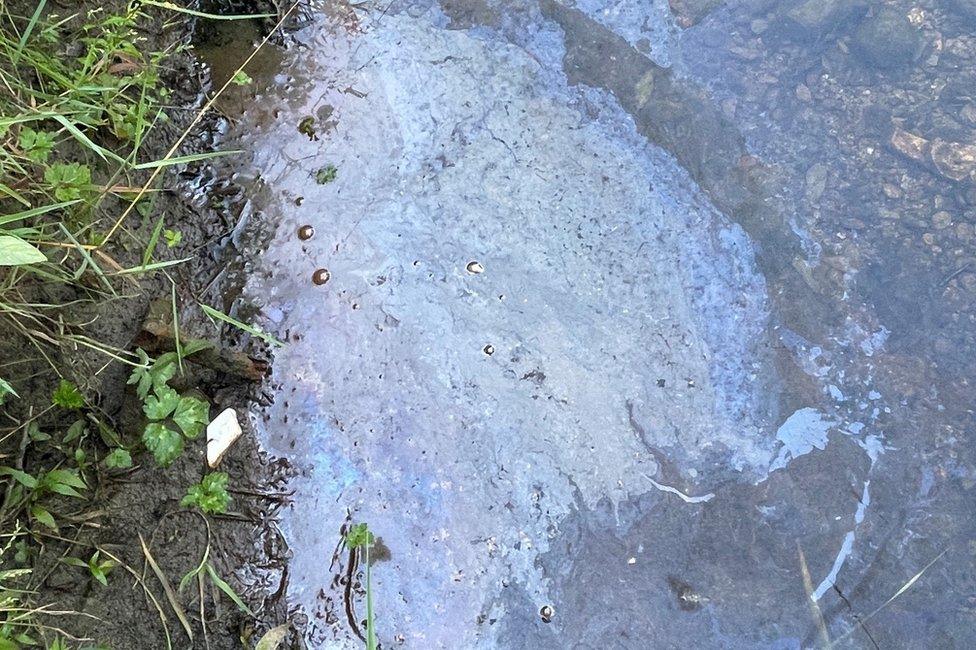
UU is permitted to discharge sewage into water courses in specific circumstances
Water companies are permitted to use storm overflows in certain conditions to prevent sewage flooding homes and roads.
The EA is only able to investigate if discharges occur outside these conditions.
Mr Staniek has started a petition calling for better regulation and for the required water standards to be higher.
A separate petition on the Parliament website calling for a ban on water companies discharging raw sewage into water courses has passed the 100,000 signatures required for it to be debated by MPs.
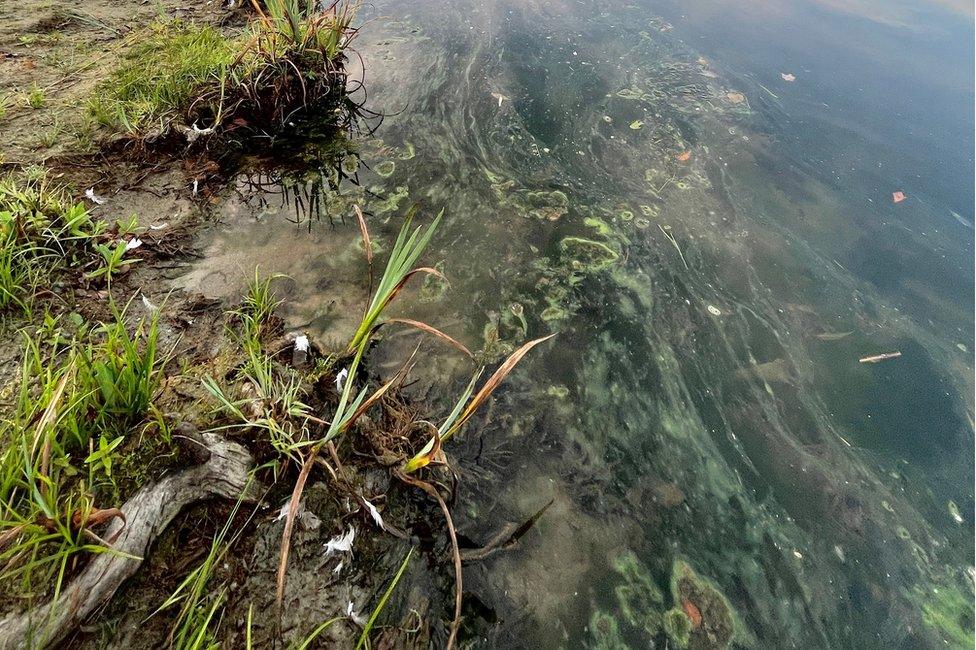
Mr Staniek said he had seen dead or dying fish, invertebrates and vegetation

Follow BBC North East & Cumbria on Twitter, external, Facebook, external and Instagram, external. Send your story ideas to northeastandcumbria@bbc.co.uk, external.
- Published28 May 2021
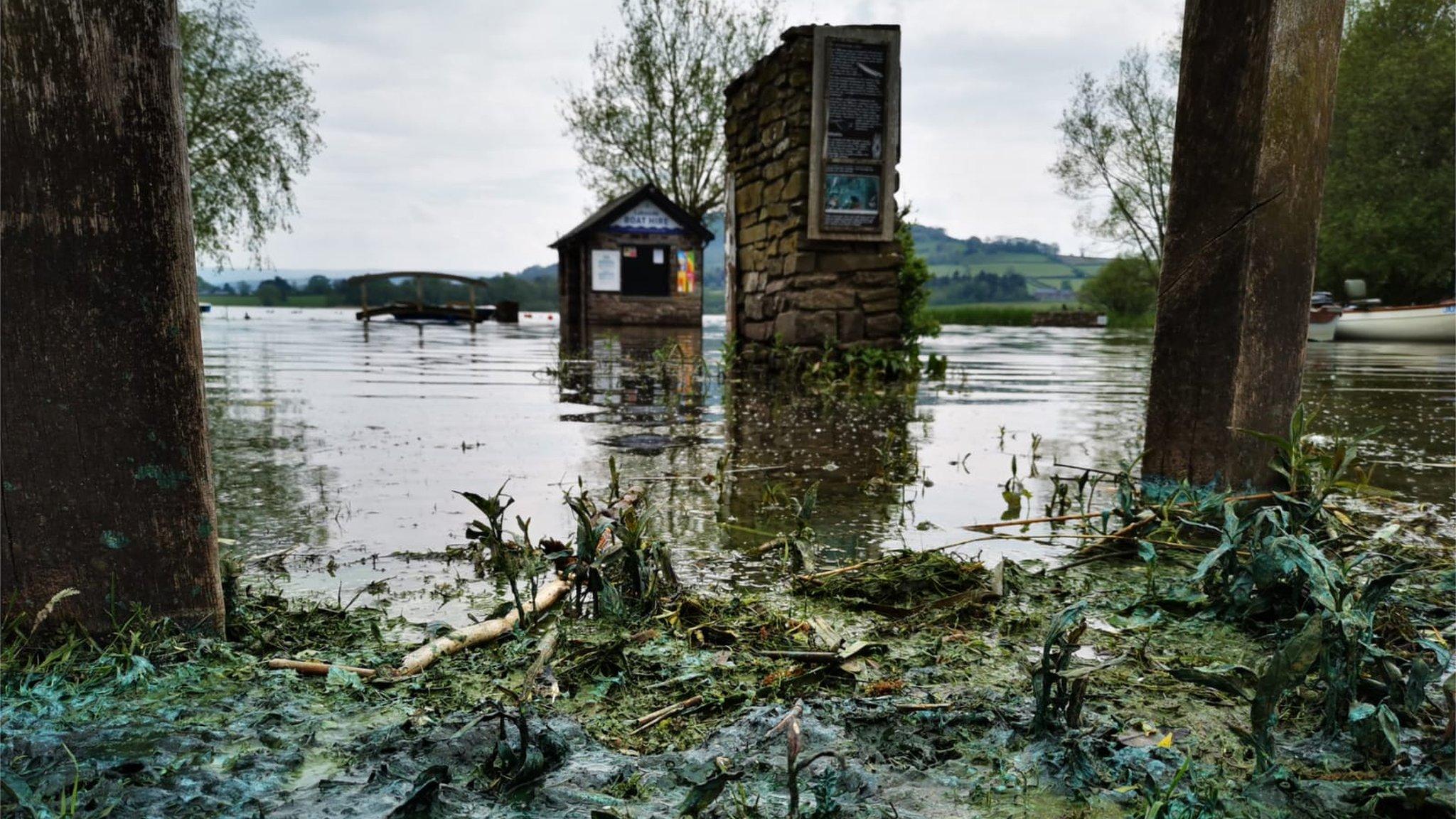
- Published4 August 2021
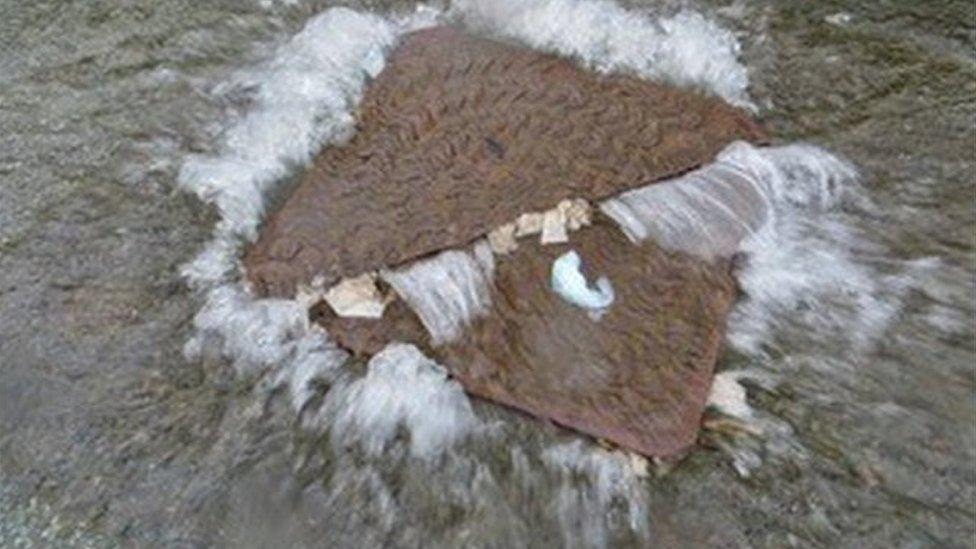
- Published17 September 2020
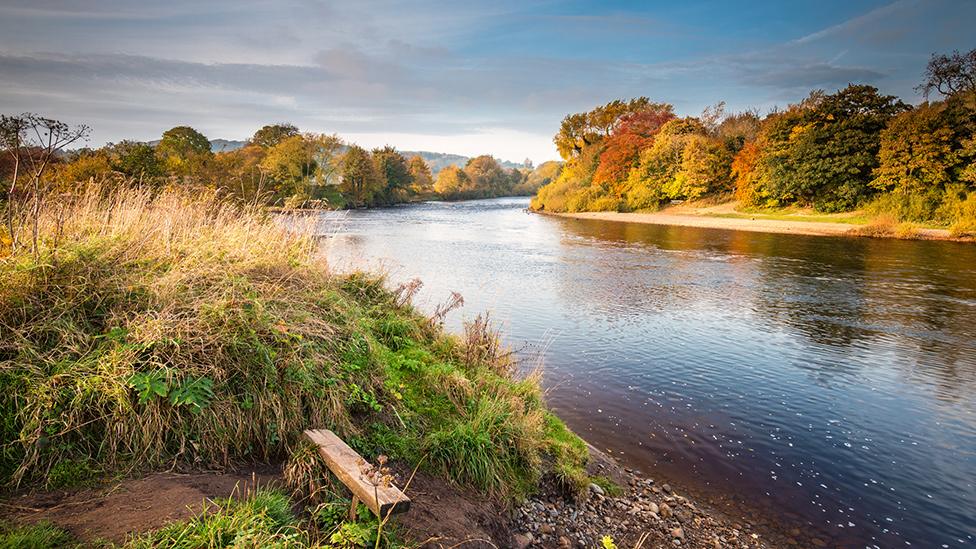
- Published22 December 2020
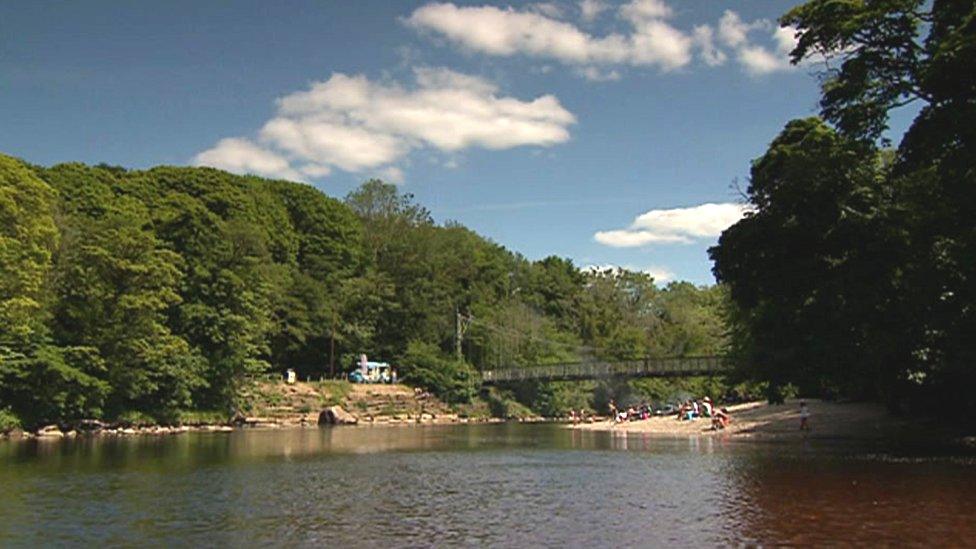
- Published7 November 2016
